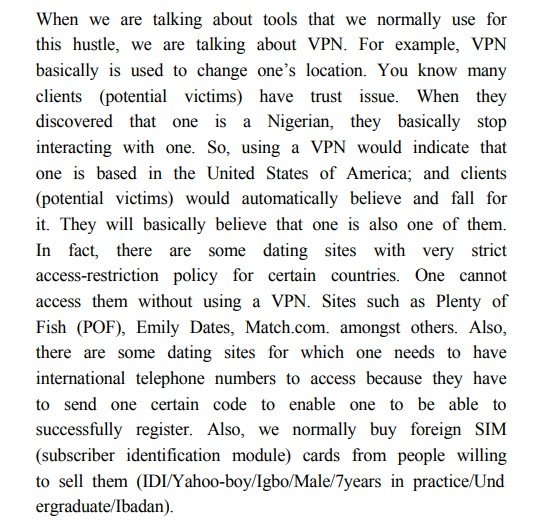Yahoo Boys, the “Princes” of Cybercrime
Yahoo Boys are hungry and unstoppable, they commit the majority of internet scams with devastating results for their victims
In today's interconnected world, where the internet has become an integral part of our daily lives, the rise of cybercrime has been an unfortunate consequence. Among the various forms of online fraud, one group that has gained notoriety is the “Yahoo Boys”. Originating from Nigeria, these individuals employ sophisticated tactics to deceive and defraud unsuspecting victims worldwide. The trend extended to Ghana under the name of the “Sakawa Boys”.
The term "Yahoo Boys" refers to a group of cybercriminals who engage in online fraud, predominantly using email and messaging as their primary means of communication. While their name stems from their early association with Yahoo Mail, their activities have expanded to encompass various other platforms, including social media, dating websites, and online classifieds.
Yahoo Boys recruit their members as well as the victims on social media. A simple search for Yahoo boys brings accounts and groups with pictures of young men with lavish lifestyles, money, cars, and expensive clothes. They teach each other how to commit fraud, share templates of messages to victims, and examples of fake social media personas they can replicate, treating it as a side hustle or a full business. The instability of the banking sector and the corruption of law enforcement makes Nigeria a perfect place for Yahoo Boys.
An interview with a Yahoo Boy (Tools, Techniques and Underground Networks of Yahoo-Boys in Ibadan City, Nigeria)
Tactics and Techniques:
Phishing Scams: Yahoo Boys often employ phishing techniques to trick individuals into revealing sensitive information. They masquerade as legitimate entities, sending deceptive emails or creating fake websites that mimic trusted organizations or financial institutions.
Advance Fee Fraud: One of the most common tactics employed by Yahoo Boys is the infamous "419 scam" or "Nigerian Prince scam." In this scheme, they convince victims to provide upfront fees or personal information under the pretense of a lucrative financial opportunity or inheritance.
Romance Scams: Yahoo Boys exploit human emotions by creating fake profiles on dating websites or social media platforms. They establish an emotional connection with victims and then manipulate them into sending money or valuable gifts. Sextortion becomes a part of the scam after a victim shares intimate pictures and the fraudsters threaten to release them.
Non-Delivery Scams: Yahoo Boys sell goods online pretending to be legitimate owners. Victims pay for the order, the delivery, for clearing border hurdles, and never receive what they ordered. This scam is also prominent in real estate fraud with scammers posting pictures of non-existing apartments and houses.
An interview with a Yahoo Boy (Tools, Techniques and Underground Networks of Yahoo-Boys in Ibadan City, Nigeria)
Fraud investigators play a crucial role in educating individuals and businesses about the tactics employed by Yahoo Boys. By disseminating information about emerging threats, investigators can help potential victims recognize and avoid falling prey to these scams. They must stay updated on the latest tools and techniques used by cybercrime criminals to be able to identify and disrupt their operations.

